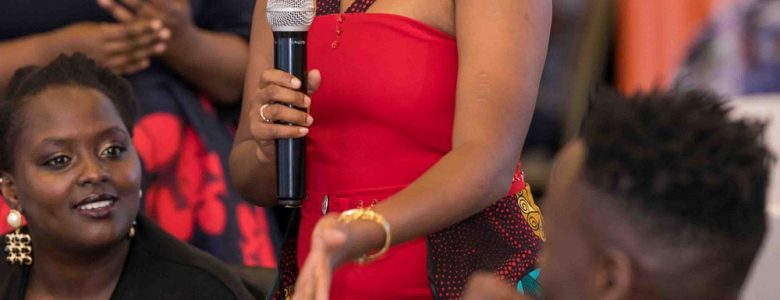Makadara SIP Mobilization Report / Makongeni
SAYDS MEDIA
November 16, 2022
SAYDS MEDIA,SIP

Poor educational outcomes as a complex system exhibit a high level of features that requires immediate and significant analysis for easier interventions.
Makongeni Estate, Makadara.
Introduction
The workshop’s main goal was to engage with the community we live in and get their involvement in improving the SIP (Systemic Insights For Policy) for education that we have created. We aim to tap into the community’s knowledge of education.
Their experiences with the education system and use that knowledge to improve SIP documents. Another goal (long term) was to train the youth on how to generate systemic insights for policy on complexities.

Background of the social problem
The workshop covered specifically invited participants from the region. The intended purpose was to bring youth to a discussion table. The social issue we care about is poor education outcomes in Makadara. Education is a complex social problem with several variables that form causal relationships. This was explained using a causal loop diagram during the session. The Makadara Team became motivated to understand the reason behind the poor outcome of the education system among youth in Makadara using complexity and systems thinking tools. Today Kenya suffers quality of education setbacks. Youth in Makadara mostly believe that jobs are lacking in the region and the country because they have inadequate job-securing skill sets.
Consequently, most schools do not teach technical skills. As a result, the end product is individuals who cannot secure decent jobs. Relating this situation to the social problem we care about, we found out that most graduates are form four leavers who lack skills such as digital and innovative skills, among others. According to available data, the high level of unemployment in Kenya indicates that supply surpasses demand, public school infrastructure is dilapidated, teaching materials and models are outdated, and the teacher-student ratio is disproportionately pathetic. To address these issues and ensure skills provision is prioritized in Makadara, it would be better to use system thinking as the best diagnostic tool.
Objectives of the workshop
-
To deepen the systemic insights for policy by getting additional information from the community.
-
To create buy-in in the community for the proposed insights on how policies should be designed.
-
Educate the community on using systems thinking to put together policy insights.
Discussions
The participants shared their ideas concerning key points about education as the major problem leading to the region’s unemployment rates. These are the gaps they addressed :
Objectives of the workshop
-
The lack of career educators has made the youth choose the wrong courses.
-
Financial constraints in which most families are languishing in poverty and unable to meet university or Technical institutions fee requirements.
-
Some young people miss admission due to higher grades for some courses.
-
Poor connections and support. Youth believe having no one to support their talents has been a major blow. For example, Makongeni ward is known for football activities that most youth have resolved to as an option to earn a living.
-
Negative peer influence destroys the sharpest minds that good education could become future changemakers.
-
Illiteracy due to less concerned parents who do not give their children enough support to achieve greatness. These parents do not care whether the child gets good grades or fails.
-
Lack of moral values. Most youth have resolved to dirty activities such as stealing, drug abuse, and prostitution that have blocked them from pursuing higher education. They believe in making quick money.
Participation
This workshop consisted of 15 participants. They include SCA members (systems thinkers), Regional coordinator (SAYDS), students(both secondary and tertiary), young entrepreneurs, and Teachers.
SCA & SIP
SCA stands for SAYDS Community Association, a semi-autonomous arm of SAYDS that aims to implement projects during the fellowship. The association supports its members in implementing social initiatives to create positive social change.
SIP, which stands for Systemic Insights for Policy, is the key value of SCA. SIP structure aims at addressing Devolution. Devolution is the opportunity that SIP will assist the youth to be part and parcel of the government’s voice. This will enable the youth to become a political development and governance vehicle.
It is a policy document that has gathered information about the social problem we care about using systematic approaches. The document is enriched with systemic approaches learned from CAT and SIT and gathered from community forums and stakeholder consultations.
Discussion & feedback
The response to the session was positive. The participants were overwhelmed. Only a few wanted clarity on the following points:
- How does the document address the issue of People Living with Disabilities (PLWD)? Mr. Rone Oduor, a teacher dealing with children living with disability, shared a concern about these children who have been separated from others in the community. He said that only a few could go to school.
- Another participant wanted to know why we believed SIP was the best tool to address the situation.
Our team used CAT and SIT to respond to the two questions. The team stated that SCA was started with the primary purpose of serving the community and acting as an umbrella that includes everyone, especially the harmed.
Systemic Approach
The team described the systematic approach using CAT and SIP and gave reasons why this approach was more important to simplify a complex problem than a non-systematic approach.
Complexity analysis toolkit
Complexity is a theory that was first developed in the natural sciences field. The general understanding of this part is that a system always has several interconnected components that fit into a structure.
The main idea here was to bring the knowledge of system thinking to the community to understand how important problem solving should be to follow a chronological approach. The team tackled the four parts immensely.
A participant kept arguing why we focus much more on the problem than on what it takes to get it solved. This enabled us to walk the participants through all four parts of CAT and how we ended up with our social issue.
Interaction & Interconnection
A network comprises interactions and interconnections. Interactions are actions (what one does to the other agents and flow (transmission of resources, e.g.money, ideas, and diseases). Interconnections include similarities (what two agents share in common such as location, membership, or attributes) and social relations, such as knowledge, kingship, and social role that agents share with others.
Both interaction and interconnection share a nonlinear relationship whereby an interaction can cause, strengthen, and weaken interconnection and vice versa.
In this network concerning poor education outcomes in Makadara, the agents work with or against, cooperate, collude, or protect each other. The team used a social network diagram to expand the relationship between interaction and interconnection.
Systems Intervention Toolkit (SIT)
SIT is to provide the knowledge for effectively designing a solution for complex social problems that we care about. SIT helps us appreciate and understand the perspectives of all relevant stakeholders in the system, how to create boundaries of the system, changes in the interaction of the system, and how to design holistic interventions. This is done after we analyze the complex social problem.
A stakeholder is a person who has an interest in a given situation. When designing a solution, we must consider the action that would satisfy each stakeholder’s interest.
Policy Guide
The team summarized the stages they underwent during the policy process and making. They stressed that the guide was used to familiarize the youth with the processes and formalities involved in policy formulation. This enabled participants to believe that systems thinking is a broad approach.
Research Results
During our workshop, we found out that:
- Most young people in Makadara lack resources that can enable them to join technical institutions. One of the youth(form four leaver) who had finished form four two years ago reiterated that he could not join the tertiary level due to financial constraints.
- Some youth have skills but lack support or someone to help them nurture their talents, more so in football.
- Our system had left essential stakeholders, such as employers or company managers, coaches(football), and Juakali owners.
- Some are already equipped with skills but lack job connections.
Key Insights from research findings
Since our main goal was to get the additional information and refine the details gathered and used to enrich the SIP document, the following were the key highlights pointed out during the workshop :
- Systemic Insights need to be inclusive of all people, especially those with disabilities. A participant questioned why the document did not address that.
- To start addressing problems to avoid emergence. One member stressed that most organizations identify problems but do not offer solutions that are ineffective.
- There was mention of private companies such as Safaricom Foundation and Coca Cola company which can support us in solving complex problems if we are well engaged and convinced using the insights.
- Mentorship and empowerment through training should form part of our solutions.
- Creating awareness(Agenda setting) about the problem so that the coming generation should have a good idea of how to navigate through the process.
- Involving the media to talk about the problem.
- Provide additional statistics.
Conclusion
The workshop was carried out per the scheduled program, and we met our overall objectives. Participants benefited from the training and were ready to be part of the learning process in days to come.
Recent Post
How delivering Systemic Insights For Policy and doing mobilization workshops Impacted our work in the community
November 16, 2022
Why listening to community members can lead to systems changeNovember 16, 2022
Tumaini Team SIP Delivery to Nairobi County GovernmentVolunteer
You will be placed in the appropriate team or project depending on your skills and experience. Please reach out if you can assist us in any of the following fields:








